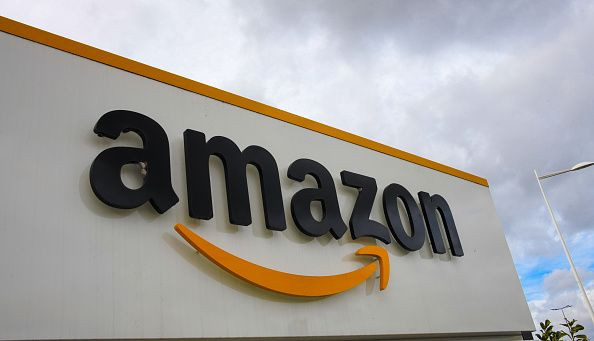Amazon Makes Healthcare Buy As Its Plans Start To Take Shape

In what is its first healthcare-related acquisition since spending $753 million in June 2018 to acquire PillPack, Amazon.com (NASDAQ:AMZN) inked a deal to buy Health Navigator, a start-up that provides digital triage tools and symptom lookup. The value of the deal was not disclosed.
Amazon intends to offer Health Navigator services to its employees, shedding further light on where the e-commerce giant is heading in the healthcare market.
In late October, Amazon confirmed it purchased Health Navigator, telling CNBC it will fold it into Amazon Care, its new employee healthcare benefit that gives users access to virtual doctors and nurses. The idea is to leverage technology so employees can access healthcare providers in a manner that's convenient and at a lower cost. In addition to accessing virtual doctors and nurses, Amazon Care users (currently limited to employees in the Seattle area) can fill prescriptions through the e-commerce giant and choose between having them delivered or picked up at a participating pharmacy. By providing healthcare services to its employee base Amazon gets to test the waters and make fixes before the program is offered to a wider market. That serves to keep costs down and prevent it from making missteps on a large scale basis.
Amazon hasn't laid out all its plans in the healthcare market, but the acquisitions and initial products coming out of its healthcare joint venture with JPMorgan Chase (NYSE:JPM) and Berkshire Hathaway (NYSE:BRK-A)(NYSE:BRK-B) are starting to provide an outline for what it wants to do.
Cutting costs, increasing accessibility is Amazon's goals
At the heart of Amazon's aspirations is cutting the costs and challenges associated with healthcare, whether that means managing the price of medicine or increasing accessibility to doctors and nurses. In January 2018, it teamed up with JPMorgan Chase and Berkshire Hathaway to offer employees medical insurance. Now called Haven Healthcare, the group is gearing up to roll out its first products: two health insurance plans employees can begin to tap in 2020. The plans include free preventive care, no coinsurance or deductible, and $15 co-pays. This is the first product out of the secretive Haven Healthcare, but it showcases how Amazon and its partners are focused on lowering costs of medical care and insurance.
The acquisition of Health Navigator also helps Amazon achieve the goal of lowering the expenses associated with healthcare. Health Navigator's technology is aimed at making it cheaper and easier to receive medical care. Microsoft is one of its many customers, providing the software giant with a clinical vocabulary and symptom checker technology to power a health bot. The bot uses layperson language to ask patients about their symptoms, ask relevant follow-up questions, and provide care options and potential causes. That eliminates the need for the sick employee to take time off from work, spend the money to get to the doctor and then wait in the office, for hours in some cases, to be seen. The bot can determine if it's something as basic as a common cold and prescribe an over-the-counter remedy. A slew of telemedicine companies also use Health Navigator's technology.
Amazon wants it all
For some time now, Amazon has been laying the groundwork to enter the healthcare market, which is massive at $3.5 trillion and in need of some disruption. What better company to do it -- Amazon has already changed retail and the way millions of people shop. While it's been cagey about its intentions, many have speculated about what it will look like. Some think Amazon will disrupt the pharmacy market, dealing a direct blow to the likes of Walgreens and CVS Health. Others think it wants to own the telemedicine market, coming for the likes of Teladoc Health. But CB Insights, a market research company, thinks Amazon wants it all. It also thinks the retail giant has the size and reach to get just that.
For investors, These healthcare-related efforts may mean a new area of revenue growth at a time when Amazon is warning it could be slowing. For its fourth quarter, Amazon is projecting revenue of between $80 billion and $86.5 billion, which is lower than the $87.4 billion analysts were expecting. That comes even though the quarter includes the holiday shopping season. The healthcare market is also a huge opportunity to diversify further for the eCommerce giant.
"Amazon's potential foray into healthcare has already caused players in the space to scramble and reevaluate their core competencies. While Amazon has barely scratched healthcare's surface, it has the potential to upend the space with its e-commerce expertise," wrote CB Insights. "Without the need to make money in healthcare, the high margin and convoluted parts of the healthcare business are ripe for disruption." All of which means there's another bastion of growth Amazon can hang its head on if eCommerce growth levels off.
This article originally appeared in the Motley Fool.
Donna Fuscaldo has no position in any of the stocks mentioned. The Motley Fool owns shares of and recommends Amazon, Berkshire Hathaway (B shares), Microsoft, and Teladoc Health. The Motley Fool recommends CVS Health and recommends the following options: long January 2021 $200 calls on Berkshire Hathaway (B shares), short January 2021 $200 puts on Berkshire Hathaway (B shares), long January 2021 $85 calls on Microsoft, and short January 2020 $220 calls on Berkshire Hathaway (B shares). The Motley Fool has a disclosure policy.





















